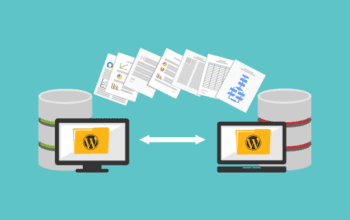When it comes to choosing a web hosting service, two of the most common options are shared hosting and dedicated hosting. Both have their advantages and drawbacks, and the right choice for you will depend on your specific needs, budget, and the type of website you’re running. In this article, we’ll explore the differences between shared hosting and dedicated hosting, outlining the benefits and challenges of each, and helping you make an informed decision about which option is best for your website.
What is Shared Hosting?
Shared hosting is the most common and affordable type of web hosting. As the name suggests, with shared hosting, your website shares a server with other websites. This means that multiple websites are hosted on the same physical server, sharing resources like CPU, RAM, bandwidth, and disk space.
How it Works:
• Your website operates on a server alongside many other websites.
• You have limited access to server resources, which are divided among all users on the server.
• The hosting provider manages the server, including security, updates, and maintenance.
Best for: Small businesses, bloggers, and personal websites that don’t expect high traffic volumes.
What is Dedicated Hosting?
Dedicated hosting, on the other hand, provides a more powerful and customizable option. With dedicated hosting, you rent an entire server for your website. Unlike shared hosting, you don’t share resources with other websites, which means you have full control over the server’s resources and configurations.
How it Works:
• You have a dedicated server to yourself, meaning all the resources are at your disposal.
• You have full control over the server, including software installations, security configurations, and server maintenance (though some providers offer managed dedicated hosting services where they handle the server management).
• Dedicated hosting offers much more power and flexibility compared to shared hosting.
Best for: Large businesses, high-traffic websites, and sites requiring high customization or advanced security.
Key Differences Between Shared and Dedicated Hosting
To help you decide which hosting option suits your needs, it’s important to understand the key differences between shared and dedicated hosting. These differences impact various aspects of your website’s performance, security, and maintenance.
a. Performance and Speed
Shared Hosting:
• Limited resources: Since multiple websites share the same server, the performance can suffer if other websites on the server consume a large amount of resources. This can lead to slower load times, especially if there’s a spike in traffic.
• Variable speed: Your website’s speed will depend on how much of the server’s resources are being used by other sites at any given time. If another website experiences a traffic surge, it may impact your website’s performance.
Dedicated Hosting:
• Superior performance: With dedicated hosting, you have access to the full resources of a server, ensuring better speed and performance. There are no other websites consuming your server’s resources, so your website can run optimally.
• Guaranteed uptime: Because the server is exclusively yours, you have full control over performance settings, which leads to more consistent and faster load times.
Winner: Dedicated hosting offers significantly better performance, especially for websites with high traffic or resource-intensive applications.
b. Control and Customization
Shared Hosting:
• Limited control: Shared hosting typically offers limited control over server settings. Most configurations, including security settings, software updates, and resource allocations, are managed by the hosting provider.
• Limited customization: You may have restrictions on installing certain software or configuring advanced server settings.
Dedicated Hosting:
• Full control: With dedicated hosting, you have complete control over the server. You can configure the server’s hardware and software according to your needs, allowing for high customization.
• Advanced features: Dedicated hosting lets you use specialized software, install custom applications, and choose your preferred operating system, giving you flexibility not available in shared hosting.
Winner: Dedicated hosting is the clear winner here, as it offers total control and customization options.
c. Security
Shared Hosting:
• Less secure: Since multiple websites share the same server, if one website is compromised, the others on the same server may also be vulnerable. This makes shared hosting less secure compared to dedicated hosting.
• Basic security: While shared hosting providers typically include basic security features (firewalls, SSL certificates, etc.), the overall security is limited by the shared environment.
Dedicated Hosting:
• Enhanced security: Dedicated hosting offers superior security since you’re the only user on the server. You can implement advanced security measures, such as custom firewalls, encryption, and other security protocols.
• Control over security: You can configure the server to meet specific security needs and install additional protection layers like anti-virus software or DDoS protection.
Winner: Dedicated hosting provides much better security, especially for websites that handle sensitive data or require stringent protection.
d. Cost
Shared Hosting:
• Lower cost: Shared hosting is the most affordable hosting option, making it a popular choice for startups, small businesses, and personal projects. Prices typically range from a few dollars to around $10 per month.
• Cost-effective for low-traffic websites: If you’re running a small website with low traffic, shared hosting provides excellent value.
Dedicated Hosting:
• Higher cost: Dedicated hosting is significantly more expensive, with prices typically ranging from $80 to over $200 per month. This cost is justified by the superior performance, customization, and security offered.
• Ideal for high-traffic sites: Dedicated hosting is a good investment if your website requires high performance and security or if it has high traffic volumes.
Winner: Shared hosting is the more cost-effective choice, while dedicated hosting is better suited for businesses with higher budgets and more demanding needs.
e. Maintenance and Support
Shared Hosting:
• Managed by the provider: The hosting provider takes care of all the server maintenance, software updates, and security patches, leaving you with minimal responsibility.
• Basic support: Support is typically available 24/7, but because you’re sharing the server with others, you may experience slower response times during peak hours.
Dedicated Hosting:
• More responsibility: While you have full control over your dedicated server, this also means you’re responsible for server maintenance, updates, and security. Some hosting providers offer managed dedicated hosting services, where they handle these tasks for you.
• Premium support: Dedicated hosting often comes with higher levels of customer support, including personalized service and priority response times.
Winner: Shared hosting is easier to manage with less responsibility, while dedicated hosting requires more involvement but offers higher-level support options.
Which Option is Right for You?
Choosing between shared and dedicated hosting depends on your website’s needs, growth potential, and budget. Here are some guidelines to help you decide which hosting solution is best for you:
Choose Shared Hosting if:
• You are running a small website or personal blog.
• Your website doesn’t expect high traffic volumes.
• You have a limited budget and need an affordable solution.
• You don’t need advanced features or heavy customization.
• You want a hands-off hosting experience with the hosting provider managing most tasks.
Choose Dedicated Hosting if:
• Your website has high traffic or complex resource needs (e.g., e-commerce, streaming, or gaming).
• You require full control over the server and want to customize it to suit your specific needs.
• Security is a top priority, and you need advanced measures in place.
• Your website needs to handle sensitive customer data or business-critical applications.
• You have a larger budget to invest in premium hosting services.
Conclusion
Both shared and dedicated hosting have their pros and cons, and the right choice ultimately depends on your website’s goals and requirements. Shared hosting is an excellent option for small websites and businesses with tight budgets, while dedicated hosting provides the power, performance, and security needed for larger websites or those with specific technical demands.
By understanding the key differences and evaluating your needs, you can make an informed decision and choose the hosting solution that best supports the growth and success of your website. Whether you go with shared or dedicated hosting, remember that your hosting choice will play a significant role in your website’s performance, security, and user experience.











